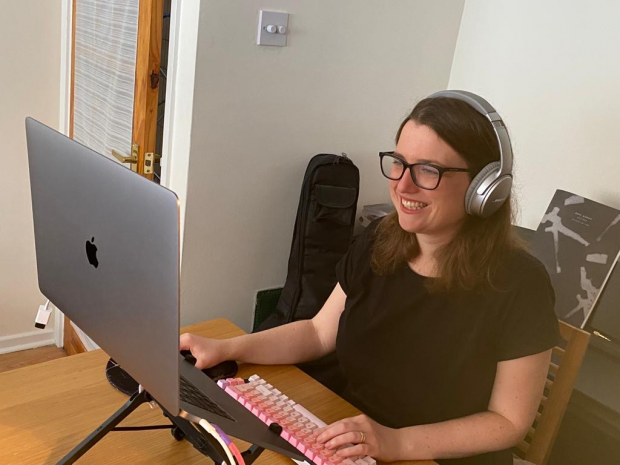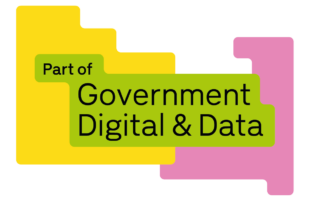
Rachael Robinson, a full stack developer explains why she joined the Department for International Trade and what makes her role so interesting.
Why did you join DIT?
I had been thinking about working as a developer in the Civil Service because I’d heard great things about career development from friends who are civil servants. When an opportunity to work for DIT came up, I was impressed by the diversity of the team, in particular the number of women in technical roles at different levels of seniority. When I reached the interview stage, my interviewers described the department as a friendly place where we could work with a range of interesting technologies on challenging problems.
My job is not just about writing code. It involves analysing the specific problem I’m trying to solve, making sense of the code that’s already there, discussing different technical solutions with colleagues, running tests and reviewing others’ code changes. There might be a couple of quick catch-ups with designers and product managers to hash out details of what I’m working on, or a call with a colleague to ask for or give advice. Our team has been working remotely because of COVID and I’ve been pleasantly surprised how easy it has been to pair-programme remotely.
What products and projects do you work on as a developer?
I currently work with an internal services team, improving and refining our existing tools for colleagues. This means our work directly helps trade advisors find the best ways to support both British businesses looking to export and companies overseas looking to invest in the UK. Working with a number of large codebases is interesting because you learn to operate with a range of new technologies and because it prompts many debates about the best ways to solve complex and interconnecting problems. In the next week or so, I’m about to start work on an alpha version of a project, which is a quick prototype used to test a value proposition. It’s a change of pace and an exciting opportunity to work on something completely new.
What skills do you need to be a developer at DIT?
When I joined the team, I had been working as a software developer in a startup. Even though I had worked with different coding languages and frameworks to my current team, my previous experiences helped me adapt quickly to using the new technologies. The department also offered me plenty of time to learn these new tools, which shows they really value development. What’s particularly important is an enthusiasm for improving your technical skills and finding effective solutions to multidimensional problems. In addition, an ability and willingness to collaborate with others is a must, as is a desire to understand the needs of our users in the wider perspective of DIT’s work.
What do you like about working for DIT?
I look for three things in a job: a great team, a product that is worth caring about and opportunities to learn and grow. Working at DIT has offered me all of these. I joined the department the day before lockdown, and it’s a testament to how friendly and supportive the team is that six months later I really feel part of a wider community, even though I’ve only met a few of my colleagues face-to-face.
I find it satisfying to work on services and products that will help secure the UK’s economic future, especially as we are in a challenging period for the British economy. DIT is a great place to work if you’re the kind of person who seizes new opportunities to learn and develop. Every week, the developer community in DIT meets up to share what we’ve been working on and best practices, which is particularly useful for learning about technologies I don’t encounter in my daily work. I’ve also been involved with the Gender Network, which has allowed me to meet colleagues from across the whole department. It’s been a great reminder that DIT is a truly global department with inspiring, multi-talented colleagues.
See our other blogs to find out what other developers say about working at DIT and how more women can be encouraged into digital data and technology careers.
If you are interested in joining the Digital Data and Technology team, sign up to our email alerts.

